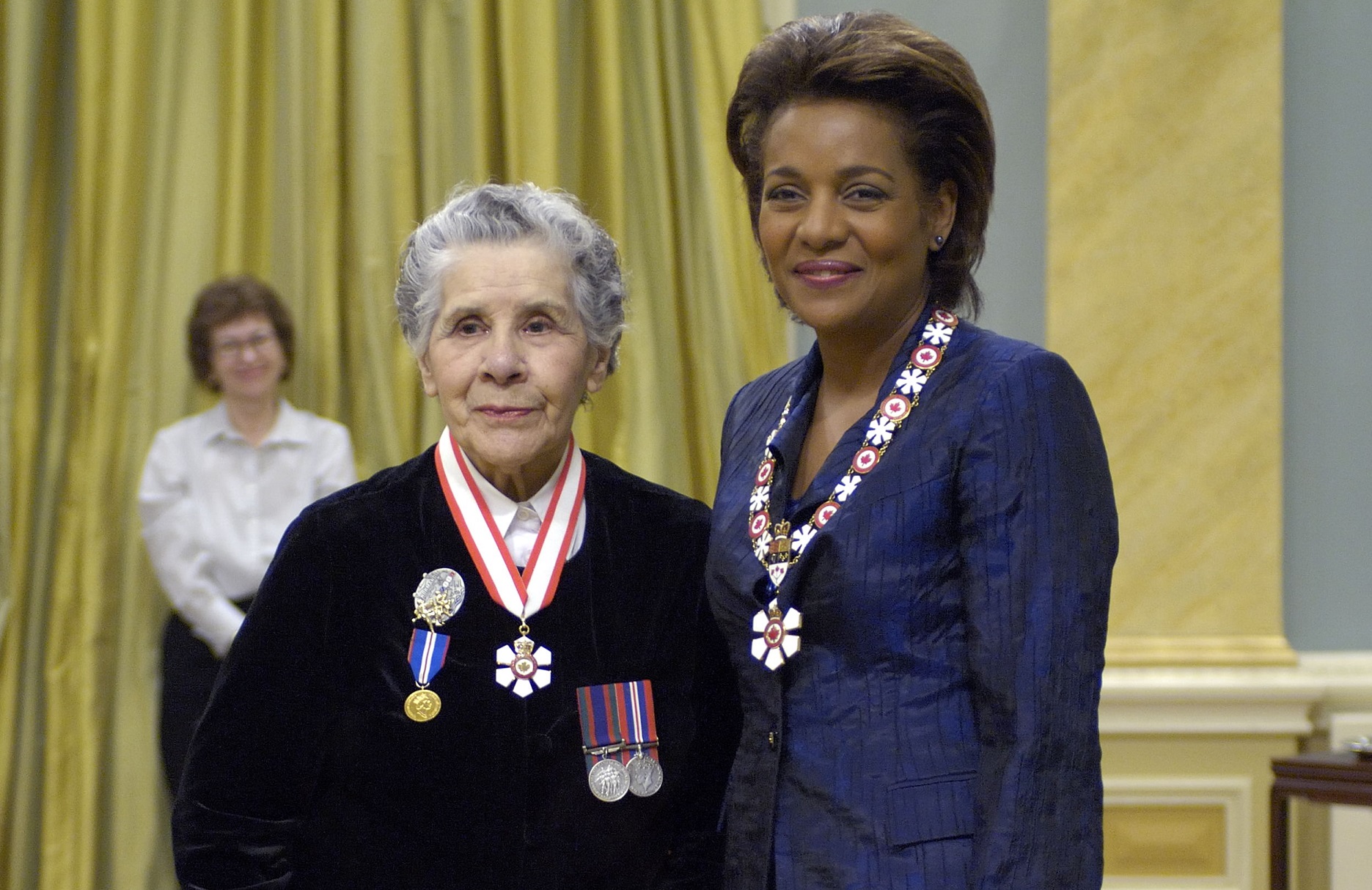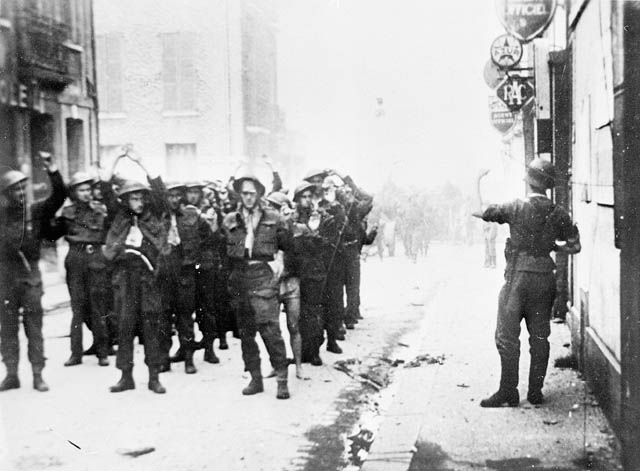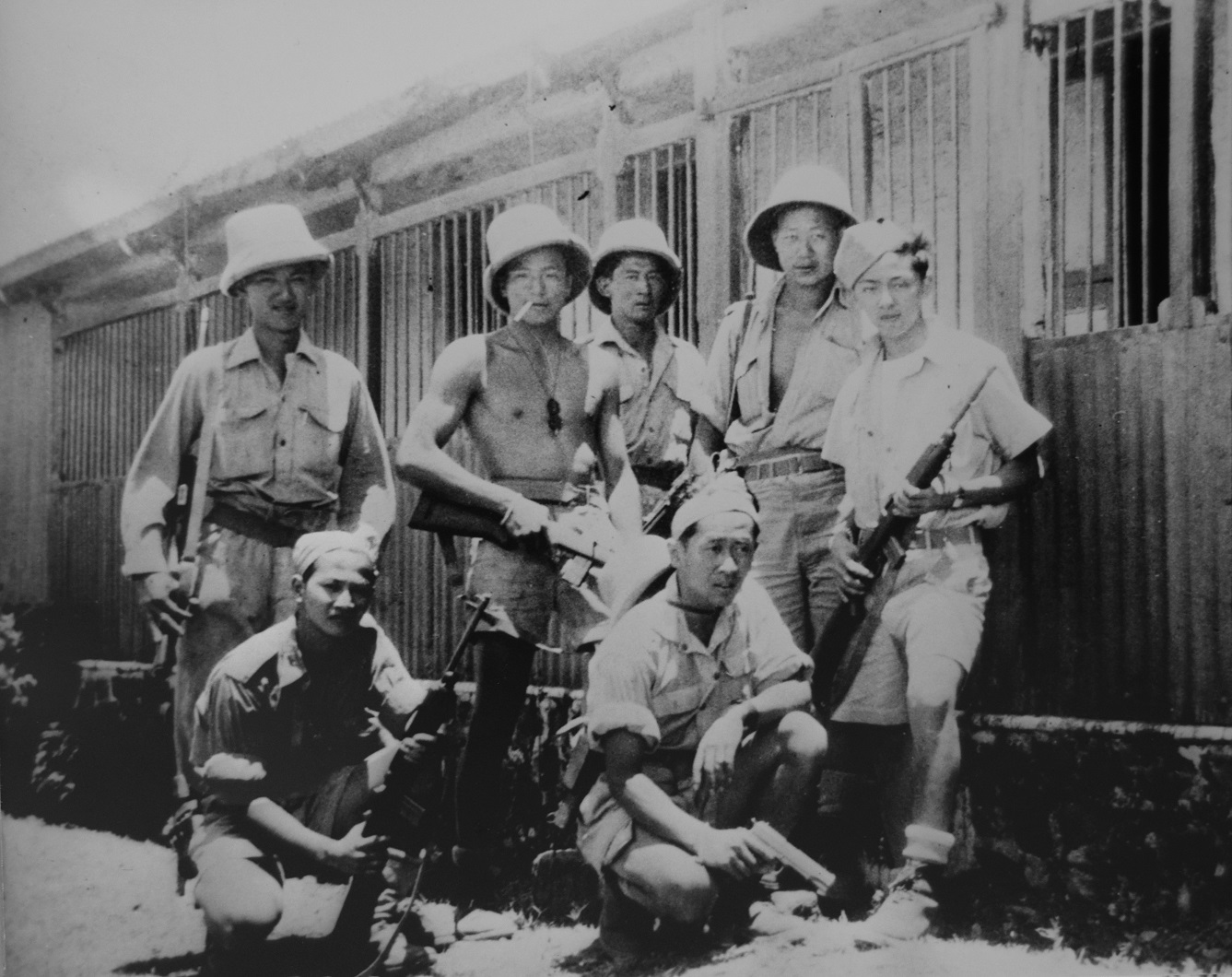Article
Andrew George Latta McNaughton
Andrew George Latta McNaughton, army officer, scientist, diplomat (b at Moosomin, NWT [Sask] 25 Feb 1887; d at Montebello, Qué 11 July 1966).

Enter your search term
Signing up enhances your TCE experience with the ability to save items to your personal reading list, and access the interactive map.
Create AccountArticle
Andrew George Latta McNaughton, army officer, scientist, diplomat (b at Moosomin, NWT [Sask] 25 Feb 1887; d at Montebello, Qué 11 July 1966).
"https://d3d0lqu00lnqvz.cloudfront.net/media/media/268c4b8a-16ce-4341-8edd-489bfe0e9665.jpg" // resources/views/front/categories/view.blade.phphttps://d3d0lqu00lnqvz.cloudfront.net/media/media/268c4b8a-16ce-4341-8edd-489bfe0e9665.jpg

Article
Andrew Charles Mynarski, Royal Canadian Air Force pilot officer, Victoria Cross recipient (born 14 October 1916 in Winnipeg, MB; died 13 June 1944 in Cambrai, France). Mynarksi served as a gunner on bomber aircraft during the Second World War. While on a mission on 12 June 1944, his plane was attacked and on fire when, rather than jumping to safety, he ran through flames to try to rescue his fellow crewmember who was trapped in the rear gun turret. Unable to extricate his friend, Mynarski parachuted safely to the ground but later died due to severe burns. His bravery earned him many posthumous commendations, including the Victoria Cross.
"https://d3d0lqu00lnqvz.cloudfront.net/media/media/186f9410-2e14-46b5-bf86-e6b04c11dd86.jpg" // resources/views/front/categories/view.blade.phphttps://d3d0lqu00lnqvz.cloudfront.net/media/media/186f9410-2e14-46b5-bf86-e6b04c11dd86.jpg

Article
John Archibald (Archie) MacNaughton, soldier, farmer (born 7 October 1896 in Black River Bridge, NB; died 6 June 1944 in Normandy, France). Archie MacNaughton fought in both the First World War and Second World War. MacNaughton rose to the rank of major and was a well-respected officer with the North Shore New Brunswick Regiment. When he was 47 years old, MacNaughton led North Shore’s “A” Company into Normandy on D-Day. He was killed in action while pushing inland from Juno Beach.
"https://d3d0lqu00lnqvz.cloudfront.net/media/new_article_images/ArchieMacNaughton/IMG_2839.JPG" // resources/views/front/categories/view.blade.phphttps://d3d0lqu00lnqvz.cloudfront.net/media/new_article_images/ArchieMacNaughton/IMG_2839.JPG

Article
Bertha Clark-Jones (née Houle), OC, Cree-Métis advocate for the rights of Indigenous women and children (born 6 November 1922 in Clear Hills, AB; died 21 October 2014 in Bonnyville, AB). A veteran of the Second World War, Clark-Jones joined the Aboriginal Veterans Society and advocated for the fair treatment of Indigenous ex-service people. She was co-founder and first president of the Native Women’s Association of Canada. Clark-Jones devoted her life to seeking equality and greater power for women in Canada.
"https://d3d0lqu00lnqvz.cloudfront.net/media/home-page-images/Bertha-clark-jones.jpg" // resources/views/front/categories/view.blade.phphttps://d3d0lqu00lnqvz.cloudfront.net/media/home-page-images/Bertha-clark-jones.jpg

Article
Major General Bertram (Bert) Meryl Hoffmeister, OC, CB, CBE, DSO & Two Bars, ED, Canadian Army officer, businessman (born 15 May 1907 in Vancouver, BC; died 4 December 1999 in Vancouver, BC). During the Second World War, Hoffmeister commanded the Seaforth Highlanders in Sicily, the 2nd Infantry Brigade at Ortona (1943) and the 5th Canadian Armoured Division, which distinguished itself under his courageous leadership in Italy and later in North-West Europe. Military historian Jack Granatstein has referred to Major General Hoffmeister as one of “the best Canadian fighting generals of the [Second world] war.”When the war ended, Hoffmeister resumed his career in the BC forest industry and was made an Officer of the Order of Canada in 1982.
"https://d3d0lqu00lnqvz.cloudfront.net/The-Memory-Project/image/7986_original.jpg" // resources/views/front/categories/view.blade.phphttps://d3d0lqu00lnqvz.cloudfront.net/The-Memory-Project/image/7986_original.jpg

Article
George Brock Chisholm, CC, CBE, ED, psychiatrist, medical administrator, soldier (born 18 May 1896 in Oakville, ON; died 4 February 1971 in Victoria, BC). Brock Chisholm earned honours for courageous service in the First World War, including a Military Cross (MC) and Bar. He obtained his MD from the University of Toronto in 1924 and became an influential psychiatrist following training at Yale University. He introduced mental health as a component of the recruitment and management of the Canadian Army during the Second World War. He directed the army’s medical services, served in the federal government as deputy minister of health, and became the founding director-general of the World Health Organization (WHO). His vocal attacks on methods of indoctrinating children with societal myths made him a controversial public figure. He was an often provocative advocate of world peace and mental health.
"https://d3d0lqu00lnqvz.cloudfront.net/media/new_article_images/Brock Chisholm.jpg" // resources/views/front/categories/view.blade.phphttps://d3d0lqu00lnqvz.cloudfront.net/media/new_article_images/Brock Chisholm.jpg

Article
During the Second World War, Canadian women, for the first time, were mobilized for service in the Canadian Armed Forces. Of the roughly 50,000 women who enlisted, more than half served in the Canadian Army. Most were assigned jobs involving traditional female work such as cooking, laundry and clerical duties, but women also pioneered roles in the mechanized and technical fields. The Canadian Women’s Army Corps (CWAC) performed essential services, both at home and overseas, that helped bring about Allied victory.
"https://d3d0lqu00lnqvz.cloudfront.net/media/media/ec5e5580-dff7-487c-bb43-afdf7b0b8543.jpg" // resources/views/front/categories/view.blade.phphttps://d3d0lqu00lnqvz.cloudfront.net/media/media/ec5e5580-dff7-487c-bb43-afdf7b0b8543.jpg

Article
In 1949 he airlifted construction material, equipment and personnel to the mountainside Palisade Lake Dam. In 1951 he performed a similar task for the Aluminium Co of Canada's giant smelter complex at Kitimat, BC.
"https://www.thecanadianencyclopedia.ca/images/tce_placeholder.jpg?v=e9dca980c9bdb3aa11e832e7ea94f5d9" // resources/views/front/categories/view.blade.phphttps://www.thecanadianencyclopedia.ca/images/tce_placeholder.jpg?v=e9dca980c9bdb3aa11e832e7ea94f5d9

Article
Charles Cecil Ingersoll Merritt, VC, barrister, soldier, Member of Parliament (born 10 November 1908 in Vancouver, BC; died 12 July 2000 in Vancouver). During the Second World War, Lieutenant-Colonel Cec Merritt was the first Canadian to earn the Victoria Cross (VC) in the European theatre, the highest award for bravery among troops of the British Empire.
"https://d3d0lqu00lnqvz.cloudfront.net/media/media/80711400-739f-490a-9ebc-775d3b25868c.jpg" // resources/views/front/categories/view.blade.phphttps://d3d0lqu00lnqvz.cloudfront.net/media/media/80711400-739f-490a-9ebc-775d3b25868c.jpg

Article
Charles Foulkes, army officer (b at Stockton-on-Tees, Eng 3 Jan 1903; d at Ottawa 12 Sept 1969).
"https://www.thecanadianencyclopedia.ca/images/tce_placeholder.jpg?v=e9dca980c9bdb3aa11e832e7ea94f5d9" // resources/views/front/categories/view.blade.phphttps://www.thecanadianencyclopedia.ca/images/tce_placeholder.jpg?v=e9dca980c9bdb3aa11e832e7ea94f5d9

Article
Charles Goldhamer, painter (b at Philadelphia, Pa 21 Aug 1903; d at Toronto 27 Jan 1985). He was commissioned as one of Canada's official war artists, and his candidly observed charcoal drawings of burned Canadian airmen in an English hospital are some of the most horrific images of WWII.
"https://www.thecanadianencyclopedia.ca/images/tce_placeholder.jpg?v=e9dca980c9bdb3aa11e832e7ea94f5d9" // resources/views/front/categories/view.blade.phphttps://www.thecanadianencyclopedia.ca/images/tce_placeholder.jpg?v=e9dca980c9bdb3aa11e832e7ea94f5d9

Article
Charles Henry Byce, DCM, MM, Cree soldier, war hero, pulp and paper mill worker (born 9 March 1916 in Chapleau, ON; died 25 November 1994 in Newmarket, ON). Byce was Canada’s most highly decorated Indigenous soldier of the Second World War (see Indigenous Peoples and the Second World War), receiving the Distinguished Conduct Medal (DCM) and the Military Medal (MM).
"https://d3d0lqu00lnqvz.cloudfront.net/media/new_article_images/CharlesHenryByce/c_byce_VAC_ portrait.jpg" // resources/views/front/categories/view.blade.phphttps://d3d0lqu00lnqvz.cloudfront.net/media/new_article_images/CharlesHenryByce/c_byce_VAC_ portrait.jpg

Article
Charles Cromwell Martin, DCM, MM, farmer, soldier, civil servant, author (born 18 December 1918 in Wales; died 13 October 1997 in Mississauga, ON). During the Second World War, Warrant Officer Class II (WO II) Charlie Martin was awarded both the Distinguished Conduct Medal and Military Medal. Martin’s "Battle Diary" memoirs, first released in 1994, remain among the most vivid portrayals of the lives of ordinary Canadian soldiers in the war.
"https://d3d0lqu00lnqvz.cloudfront.net/media/media/2e5667d1-df64-4298-947c-460779c09b44.jpg" // resources/views/front/categories/view.blade.phphttps://d3d0lqu00lnqvz.cloudfront.net/media/media/2e5667d1-df64-4298-947c-460779c09b44.jpg

Article
Charles Roy Slemon, air marshal (b at Winnipeg 7 Nov 1904; d at Colorado Springs, Colo 12 Feb 1992).
"https://www.thecanadianencyclopedia.ca/images/tce_placeholder.jpg?v=e9dca980c9bdb3aa11e832e7ea94f5d9" // resources/views/front/categories/view.blade.phphttps://www.thecanadianencyclopedia.ca/images/tce_placeholder.jpg?v=e9dca980c9bdb3aa11e832e7ea94f5d9

Article
Force 136 was a branch of the British Special Operations Executive (SOE) during the Second World War. Its covert missions were based in Japanese-occupied Southeast Asia, where orders were to support and train local resistance movements to sabotage Japanese supply lines and equipment. While Force 136 recruited mostly Southeast Asians, it also recruited about 150 Chinese Canadians. It was thought that Chinese Canadians would blend in with local populations and speak local languages. Earlier in the war, many of these men had volunteered their services to Canada but were either turned away or recruited and sidelined. Force 136 became an opportunity for Chinese Canadian men to demonstrate their courage and skills and especially their loyalty to Canada.
"https://d3d0lqu00lnqvz.cloudfront.net/media/new_article_images/Force136/Force136-India-w-guns.jpg" // resources/views/front/categories/view.blade.phphttps://d3d0lqu00lnqvz.cloudfront.net/media/new_article_images/Force136/Force136-India-w-guns.jpg
